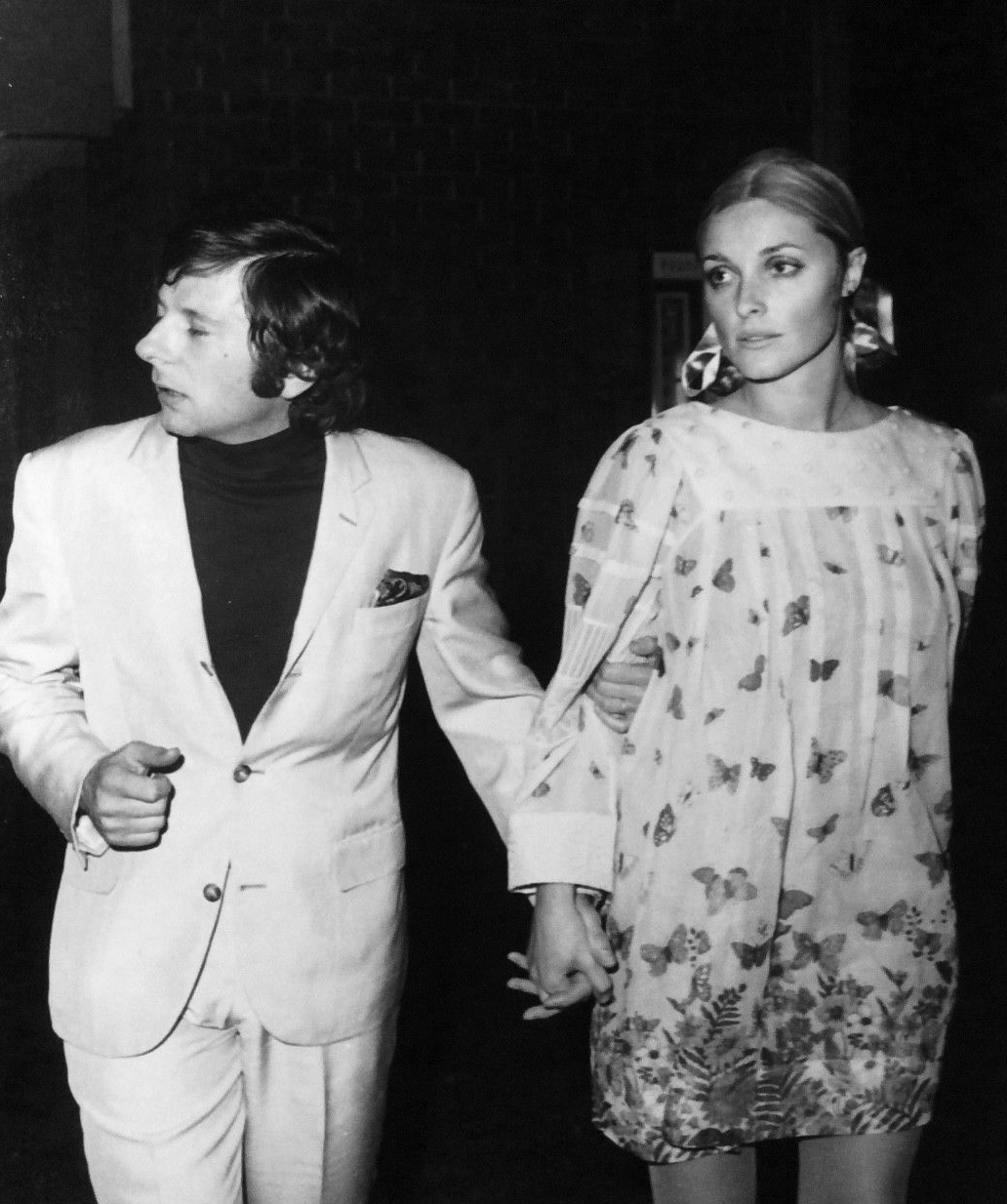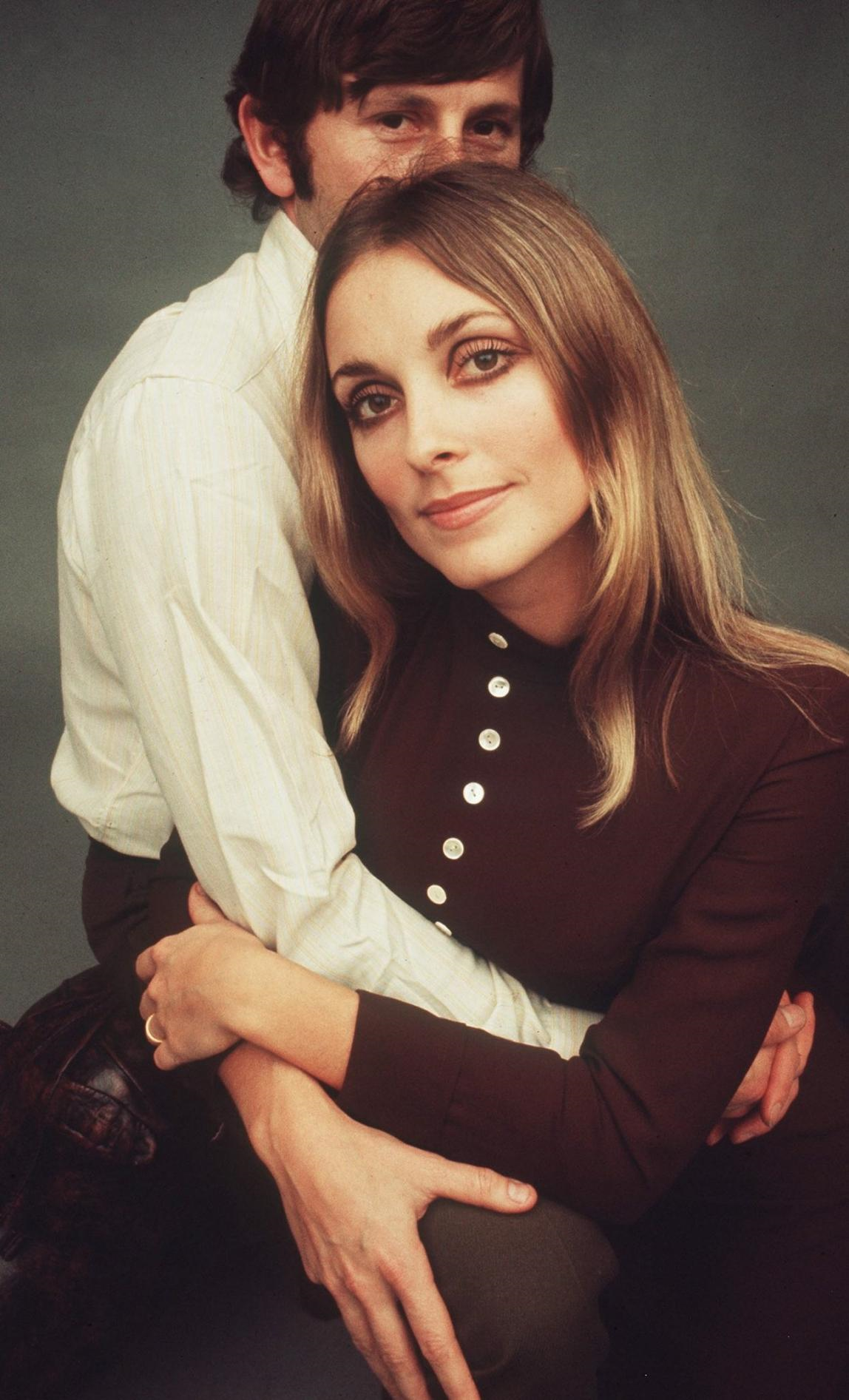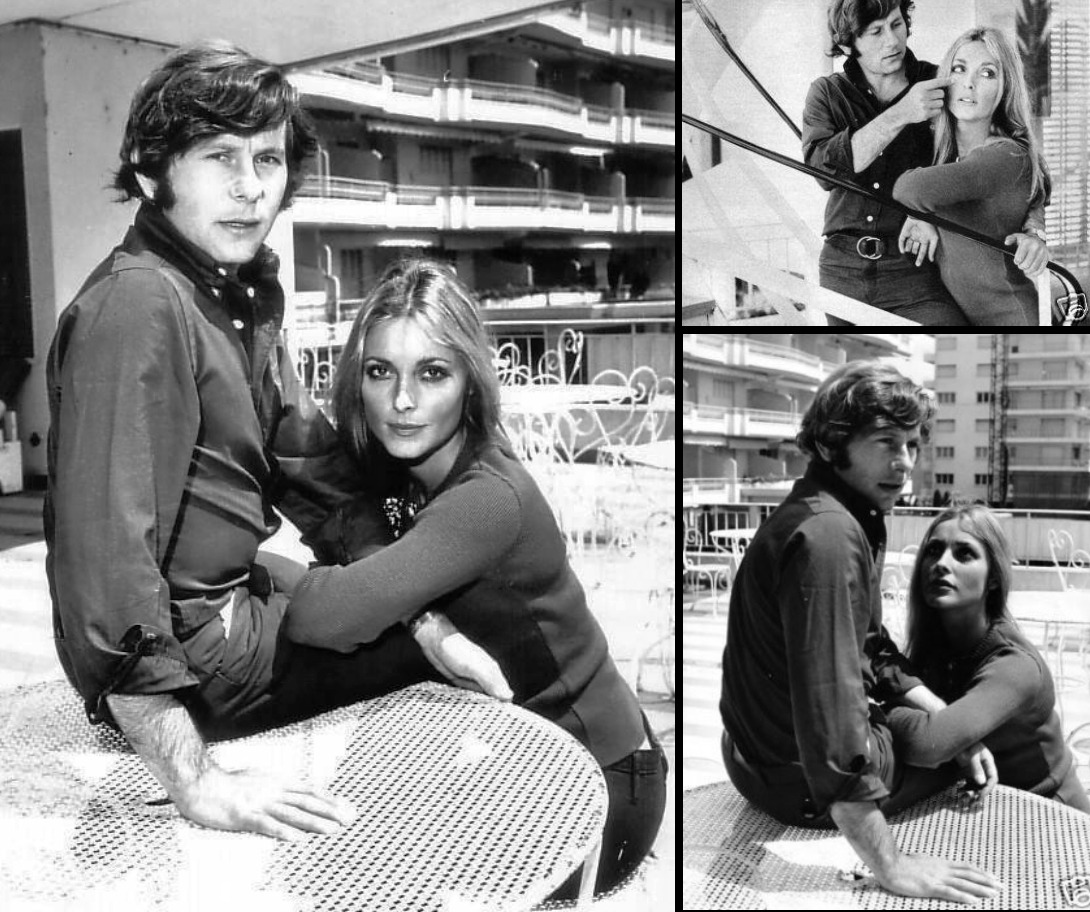The names Roman Polanski and Sharon Tate bring to mind a period of great change in Hollywood, a time when creative boundaries were pushed, and yet, also a moment of profound sadness. Their story, in a way, captures both the bright promise and the dark shadows that could fall over the lives of those in the public eye. It’s a tale that has, you know, stayed with many people for decades, drawing attention to the often-unseen parts of fame and personal sorrow. We’re going to explore the lives of these two individuals, looking at their paths before they met, their connection, and the events that would forever link their names in history.
For those who followed the film scene in the 1960s, Sharon Tate was a rising star, someone whose presence on screen was, quite honestly, quite captivating. Roman Polanski, on the other hand, had already made a name for himself as a filmmaker with a distinctive style, creating movies that often had a bit of an edge. Their coming together seemed, in some respects, like a natural pairing of talent and spirit, a partnership that promised even more interesting work and a shared life.
Yet, the narrative of Roman Polanski and Sharon Tate is not just about their professional achievements or their personal bond. It’s also, arguably, a story about the fragility of life and the way sudden, terrible events can change everything in an instant. This account will try to give a clear picture of their journey, focusing on the people they were, the world they lived in, and the lasting impact of their experiences, especially how it touched the person known as Roman, as seen in some older records.
Table of Contents
- Roman Polanski - A Life in Film
- Personal Details and Biography - Roman Polanski and Sharon Tate
- The Connection Between Roman Polanski and Sharon Tate
- The Unthinkable Tragedy - What Happened to Sharon Tate?
- Aftermath and a Director's Enduring Path
- How Did These Events Shape Roman Polanski's Life and Work?
- Sharon Tate's Enduring Image - What Do We Remember?
- Why Do We Still Talk About Roman Polanski and Sharon Tate?
Roman Polanski - A Life in Film
Roman Polanski's path to becoming a notable filmmaker was, to be honest, anything but straightforward. Born in Paris, France, in 1933, his early years were marked by the immense difficulties of World War II. His family, who were Jewish, faced terrible persecution, and young Roman spent time in hiding, living through experiences that would, in a way, shape his view of the world and later, his artistic output. These early, very tough times, instilled in him a certain resilience, a kind of determination that would serve him well in the demanding world of moviemaking.
After the war, his family moved to Poland, where he began to pursue his interest in the arts. He attended the Łódź Film School, a place known for producing some truly gifted directors. His student films quickly showed a unique talent, a knack for creating suspense and exploring the darker sides of human nature. These early works, though small in scale, really hinted at the significant impact he would later have on the film industry. His ability to craft compelling stories, even with limited resources, was, you know, pretty clear from the start.
Polanski's first full-length feature film, "Knife in the Water," released in 1962, brought him international attention. It was a tense psychological thriller that earned an Academy Award nomination, which was, quite frankly, a big deal for a Polish film at the time. This success opened doors to working in the United Kingdom and then, eventually, in Hollywood. He moved to London, where he made "Repulsion" and "Cul-de-sac," films that further established his reputation for unsettling, atmospheric storytelling. It was during this period that he started to become a truly recognized name in the world of cinema, a director with a distinct voice and vision, someone who, basically, pushed boundaries.
Personal Details and Biography - Roman Polanski and Sharon Tate
| Detail | Roman Polanski | Sharon Tate |
|---|---|---|
| Birth Name | Rajmund Roman Liebling | Sharon Marie Tate |
| Born | August 18, 1933, Paris, France | January 24, 1943, Dallas, Texas, USA |
| Died | N/A (Still Living) | August 9, 1969, Los Angeles, California, USA |
| Occupation | Film Director, Screenwriter, Actor, Producer | Actress, Model |
| Spouse(s) | Barbara Kwiatkowska (m. 1959; div. 1962) Sharon Tate (m. 1968; died 1969) Emmanuelle Seigner (m. 1989) | Roman Polanski (m. 1968) |
| Children | Morgane Polanski, Elvis Polanski (with Emmanuelle Seigner) | N/A (Pregnant at time of death) |
| Notable Works | Rosemary's Baby, Chinatown, The Pianist, The Ghost Writer | Valley of the Dolls, The Fearless Vampire Killers, The Wrecking Crew |
| Awards | Academy Award for Best Director (The Pianist), BAFTA Awards, Golden Globe Awards, César Awards, Venice Film Festival Golden Lion, Berlin Film Festival Golden Bear | Golden Globe Award nomination (Valley of the Dolls) |
The Connection Between Roman Polanski and Sharon Tate
The paths of Roman Polanski and Sharon Tate crossed during the making of the film "The Fearless Vampire Killers," sometimes called "Dance of the Vampires," in 1967. Polanski was directing, and Tate was cast as the female lead, Sarah Shagal. There was, basically, an immediate attraction between them, a kind of spark that went beyond just professional respect. Sharon, with her bright spirit and striking looks, was, you know, a perfect fit for the role, and her natural charm seemed to complement Roman's more intense and artistic personality.
Their working relationship quickly turned into a personal one. They fell in love, and their romance became a topic of interest in the film world. They seemed to represent a certain kind of youthful, artistic energy that was very much in vogue during the late 1960s. Their shared passion for film, and their individual creative drives, probably helped them connect on a very deep level. It was, in a way, a quintessential Hollywood romance, full of promise and excitement, very much in the public eye.
Roman Polanski and Sharon Tate married in London on January 20, 1968. Their wedding was a relatively quiet affair, but their life together in Hollywood was anything but. They quickly became a prominent couple in the social scene, hosting gatherings and spending time with other creative people in the film and music industries. Sharon, meanwhile, was seeing her acting career take off, particularly with her role in "Valley of the Dolls," which brought her widespread recognition and a Golden Globe nomination. They were, it seemed, living a dream, building a life filled with artistic pursuits and personal happiness. Sharon was, too, expecting their first child, adding another layer of joy to their lives, really.
The Unthinkable Tragedy - What Happened to Sharon Tate?
The story of Roman Polanski and Sharon Tate takes a truly heartbreaking turn with the events of August 9, 1969. On that terrible night, Sharon Tate, who was eight and a half months pregnant, was at her home in Benedict Canyon, Los Angeles, with a few friends. Roman Polanski was away in London, working on a film project, a detail that, in a way, makes the tragedy even more poignant. What followed was an act of extreme violence carried out by members of the Manson Family, a cult led by Charles Manson. It was, quite frankly, an event that shocked the world and forever changed the lives of everyone connected to it.
The victims at the house included Sharon Tate, Jay Sebring, Wojciech Frykowski, and Abigail Folger. Another person, Steven Parent, was killed as he was leaving the property. The details of the crime were, basically, horrific and widely reported, sending a wave of fear and disbelief across the nation. The sheer brutality and apparent randomness of the killings were, you know, deeply unsettling. It felt like a sudden, very dark cloud had descended over the carefree spirit of the 1960s, a moment when innocence seemed to vanish.
The discovery of the murders led to a massive investigation. The initial confusion and lack of clear motive made the case particularly difficult for law enforcement. It took some time for the full picture to emerge, for the connections to Charles Manson and his followers to be made. When the arrests finally happened, the public was, quite honestly, stunned by the revelations about the cult and their twisted ideology. The tragedy left an indelible mark on Hollywood and on the public's perception of safety and celebrity, a truly devastating moment for Roman and so many others.
Aftermath and a Director's Enduring Path
The impact of Sharon Tate's death on Roman Polanski was, as one might expect, absolutely devastating. He returned to Los Angeles immediately after hearing the news, stepping into a nightmare that would haunt him for the rest of his life. The grief was, in a way, immeasurable, compounded by the very public nature of the tragedy and the intense media scrutiny that followed. For a long time, he struggled to cope with the loss, finding it incredibly difficult to process such a senseless act of violence against his wife and unborn child. It was, quite simply, a period of profound sorrow and disorientation for him.
In the immediate aftermath, there was a lot of public speculation and, frankly, some unfair suspicion directed at Polanski himself, before the true culprits were identified. This added another layer of pain to his already overwhelming grief. Once the Manson Family was apprehended and brought to justice, the focus shifted, but the personal scars remained. Polanski, in some respects, channeled his pain into his work, though it took time for him to return to filmmaking with the same intensity. His next film, "Macbeth," released in 1971, was, you know, notably dark and violent, seen by many as a reflection of his recent trauma.
Despite the immense personal sorrow and the later legal troubles that would force him to leave the United States, Polanski continued his career as a director. He made films in Europe and, over the decades, continued to produce works that often received critical acclaim. His ability to keep creating, to keep telling stories, even after experiencing such a profound loss, is, arguably, a testament to his resilience as an artist. His life path, which included a connection to Sharon Tate, became a complex narrative of both creative brilliance and personal hardship, a story that, basically, keeps getting talked about.
How Did These Events Shape Roman Polanski's Life and Work?
The tragedy involving Sharon Tate and the Manson Family killings had, quite frankly, an undeniable and lasting effect on Roman Polanski's life and his artistic output. It's difficult to separate the man from the events he endured, and his films often carry a certain weight, a sense of unease or a look at the darker parts of human nature that many believe stem from his personal experiences. For example, "Macbeth," his first film after Tate's death, is a very brutal and bleak adaptation of Shakespeare's play, filled with violence and a pervasive sense of doom. It was, you know, seen by many as a direct expression of his grief and trauma.
Later films, even those that seem less directly connected, often explore themes of paranoia, betrayal, and the loss of innocence. "Chinatown," released in 1974, is a classic film noir that delves into corruption and moral decay, presenting a world where justice is elusive and darkness prevails. While it's a fictional story, the underlying sense of a world gone wrong, where things are not as they seem, could be seen as reflecting a worldview shaped by his personal ordeal. He seemed to, in a way, have a knack for showing the hidden dangers beneath a calm surface.
His work continued to gain recognition, with films like "The Pianist" earning him an Academy Award for Best Director. Even in a story of survival and human spirit, there's a certain starkness, a recognition of the fragility of life that feels, basically, very much a part of Polanski's artistic signature. The personal suffering he experienced, while never explicitly stated in every film, arguably became a subtle undercurrent in much of his creative expression, shaping the kinds of stories he chose to tell and the way he told them. It's almost as if the pain he went through became a part of his artistic DNA, influencing the very core of his work.
Sharon Tate's Enduring Image - What Do We Remember?
Sharon Tate, tragically, is often remembered primarily for the way her life ended, which is, in a way, a disservice to the person she was and the career she was building. Before the horrific events of 1969, she was a talented actress and a rising figure in Hollywood, known for her captivating beauty and a certain lightness she brought to her roles. She had, you know, a promising future ahead of her, and her performances showed a growing maturity and presence on screen. People who knew her often spoke of her kind nature, her warmth, and her generally sunny disposition.
Her most famous role was in "Valley of the Dolls," a film that, despite mixed critical reviews, was a huge commercial success and became a cultural touchstone of the late 1960s. In it, she played Jennifer North, a character that allowed her to showcase both her vulnerability and her striking screen presence. She also appeared in "The Fearless Vampire Killers," where she met Roman Polanski, and in films like "The Wrecking Crew," where she held her own alongside a seasoned star. She was, quite frankly, making a name for herself beyond just being a pretty face, showing that she had genuine acting chops.
Today, when we think of Sharon Tate, it's important to remember her as more than just a victim. She was a young woman with dreams, a wife, and an expectant mother, someone who was, basically, full of life and potential. Her image has, in some respects, become a symbol of the fragility of the "Summer of Love" era, representing the moment when the carefree spirit of the 1960s was shattered. Yet, her legacy also lives on through her films and the memories of those who loved her, a reminder of the vibrant individual she was before tragedy struck. She was, you know, a real person, not just a headline.
Why Do We Still Talk About Roman Polanski and Sharon Tate?
The story of Roman Polanski and Sharon Tate continues to hold a strong grip on public interest, even decades after the tragic events that linked their names forever. There are, arguably, several reasons why their story remains a subject of discussion and fascination. For one, it represents a very public and brutal end to a period of optimism and social change in the 1960s. The Manson Family murders were, quite frankly, a shocking wake-up call, shattering the illusion of safety and innocence that many people, especially in California, had felt. It was, you know, a moment when the counterculture seemed to turn very dark.
Beyond the historical context, the personal narrative of Roman Polanski, a celebrated director who experienced such profound loss and then faced his own legal challenges, adds layers of complexity to the story. His continued career, marked by both brilliance and controversy, keeps his name, and by extension, Sharon Tate's, in the public conversation. People are often drawn to stories of resilience in the face of immense suffering, and Polanski's journey is, in a way, a powerful example of that, even with all its difficult parts. It's almost like a real-life drama that just keeps unfolding.
Furthermore, Sharon Tate's image as a beautiful, promising young actress whose life was cut short too soon evokes a sense of enduring sadness and "what if." Her story serves as a cautionary tale about the dark side of fame and the unpredictable nature of violence. The blend of Hollywood glamour, artistic ambition, and unspeakable tragedy creates a narrative that is, basically, hard to forget. It’s a story that touches on themes of love, loss, justice, and the enduring impact of trauma, making it, you know, a topic that continues to resonate with many people across different generations.
The story of Roman Polanski and Sharon Tate is, in a way, a deeply moving account of lives intertwined with both great success and unimaginable sorrow. We’ve looked at Roman Polanski’s early life and his rise as a filmmaker, understanding how his experiences shaped his artistic vision. We also explored Sharon Tate’s promising career and her vibrant presence in Hollywood. Their meeting and marriage seemed to represent a hopeful chapter, a blend of creative talent and personal happiness. However, the terrible events of August 1969 cast a long shadow, forever altering Polanski’s life and ending Tate’s. We considered how these events influenced Polanski’s work and how Sharon Tate is remembered today, beyond the tragedy. Ultimately, their story continues to be a point of discussion, serving as a powerful reminder of the unpredictable nature of life and the lasting impact of both joy and profound loss.



Detail Author:
- Name : Dewitt Metz
- Username : abdullah70
- Email : yasmine.braun@gmail.com
- Birthdate : 1972-03-04
- Address : 992 Freida Creek Lake Guido, VT 41623
- Phone : +1.832.912.7639
- Company : Murazik Inc
- Job : Watch Repairer
- Bio : Et possimus consequatur soluta omnis voluptates maiores sunt. Quidem atque et eos consequatur ad iure.
Socials
tiktok:
- url : https://tiktok.com/@hollie_xx
- username : hollie_xx
- bio : Mollitia ut sint mollitia est debitis aut facere.
- followers : 2544
- following : 1573
facebook:
- url : https://facebook.com/holliereynolds
- username : holliereynolds
- bio : Perspiciatis molestiae a ipsam laborum ex fugiat et sed.
- followers : 3110
- following : 2648